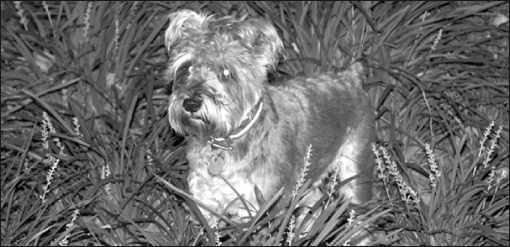By Kara Bloomgarden-Smoke
The first time Andrea Mitchell’s schnauzer Oscar saw a rat in Washington Square Park, he “went bananas.”
“I was like, ‘What is he doing!’” said Mitchell, recalling how the little dog tripped over himself and fell.
Oscar has since grown to become an expert rat catcher, and Mitchell says that he has killed 318 rats over the course of his two and a half years, and sometimes as many as 20 in one night.
When Oscar spies a rat, he grabs it by the neck and literally shakes it to death. The dog spins around in circles, snaps the rodent’s neck, and then throws it. Mitchell says that this is actually a relatively painless death because the animal dies rather abruptly soon after its neck is snapped.
“I would definitely draw the line if he got too brutal, and once when Oscar hit a nerve and got blood on his face I stopped him,” said Mitchell. “I would definitely not let him eat the rats.”
The routine by which Oscar kills the rats can be quite a spectacle. People in Washington Square Park often cheer him on, and once when he was struggling with a particularly large rat, a crowd gathered around and Japanese tourists began snapping pictures.
As the rat fatalities piled up, his owner has also become less squeamish about watching Oscar catch and kill the rodents.
“I used to leave the park after Oscar killed one rat, but now I let him kill a bunch before I take him home,” said Mitchell. She still bathes her dog after every excursion, noting that Oscar is “the cleanest dog in New York.”
According to Mitchell, rats don’t carry rabies, and die soon after they are infected by other diseases.
A vet assured Mitchell that rat catching was safe and even essential in order for Oscar to retain his calm demeanor.
“He is very sweet, he never bears his teeth,” said Mitchell. “He gets to blow off steam in the park, and would definitely be more high-strung otherwise. If he wasn’t allowed to catch rats it would be like if I had a child who was a star athlete and wasn’t allowed to play.”
Schnauzers originated in the Middle Ages as German farm dogs, and they were ratters from the start. In World War I and II, the breed was used to clean the rats out of the trenches for the soldiers.
Friends of Mitchell’s have dubbed Oscar the “Rat Patrol” and a neighbor once borrowed him overnight to catch a mouse in her apartment, but he was ineffective in this assignment.
Many see Oscar’s habit as a public service in a park that is known for having a rat problem. Park employees often unofficially allow Oscar off his leash so that he can help the neighborhood. In order to aid Oscar in his efforts and ensure his success, Mitchell will sometimes remove the clattering dog tags from his neck.
“Oscar gets sad when he doesn’t get a rat, so sometimes I have to help him out a bit,” said Mitchell.






























